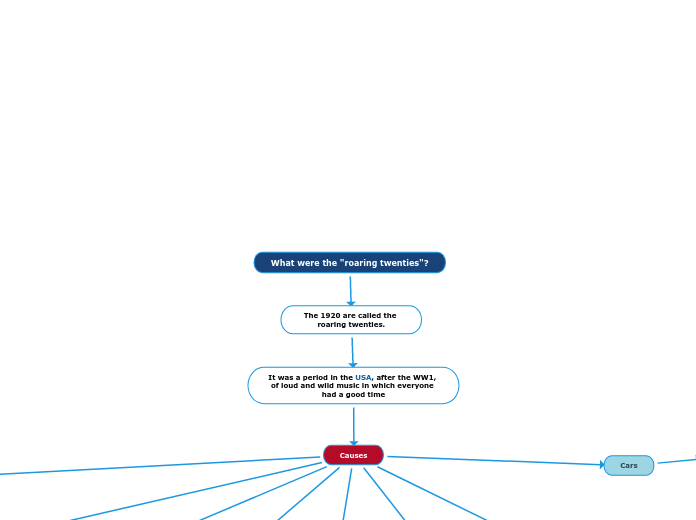What were the "roaring twenties"?
The 1920 are called the roaring twenties.
It was a period in the USA, after the WW1, of loud and wild music in which everyone had a good time
Causes
Growing cities
Majority of Americans lived in urban areas
Tension between rural and urban areas
the city were full of atheists, drunks and criminals
Fought a rearguard action against the ‘evil’ effects of the city
had a skyscraper
powerful symbol
small cities
meant that they were sharing in the boom
big cities
meant that no land was available
Entertainment
People had more leisure time and disposable income
A lot of this free time and money went to entertainment
Radio
Almost everyone in the USA listened to the radio
Choice of programs grew quickly
There was only one licensed radio station in the USA
There were 508 of them and in 1929 NBC was making $150 million a year.
Jazz
The radio gave much greater access to music
became popular in young people
Along with jazz went new dances and new styles
The older generation saw jazz and everything related to it as a corrupting influence in the young people
who moved from the countryside to the cities had brought blues and jazz with them
Blues was popular among black people
jazz was popular in both black and white people
Cinema
During the 20’s movies produced billions of dollars
The Hollywood film industry was developing
Charlie Chaplin appeared and it was a revolution
The first spoken movie was in 1927
Morals
The war sex was a taboo subject
it was something that was in the newspapers and took part of daily conversations
Discovered that this subject was best-seller so they took advantage of this
Sports
became a big money sport with legendary teams and players were national figures
Millions of Americans listened to sporting events on the radio
Cars
The motor car made all this possible
Helped the cities to grow by opening up the suburbs
They carried their owners to enjoy entertainment
